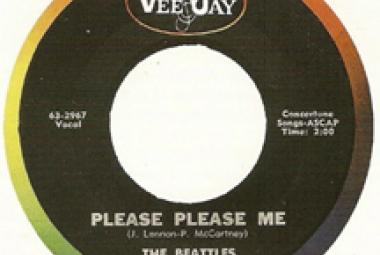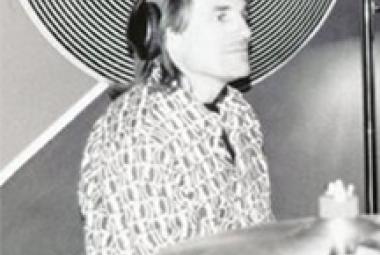Unlike several other recent posts of mine where Allmusic really had almost nothing to contribute on the band that I was writing about, there is a long article about the Primitives by Bruce Eder – maybe the longest that I have seen on Allmusic for any of the UARB’s and UARA’s over the years. The opening remarks make it clear how great Eder thinks the band was:
“The Primitives were never, ever exactly a household name, even in Oxford, where they had a serious following as a club band – and that’s a reminder that some things in life and history, and even music, are just so unfair as to be unsettling. The Primitives [were] signed to Pye Records in 1964 [and] never found even a small national audience in England. . . . Castle Communications issued their catalog on CD in 2003. That CD was a delight and a vexation; it proved in the listening that these guys deserved a lot better than cult or footnote status, but it also brought home the unfairness inherent in their status. Even in their second, slightly more pop-oriented incarnation, when they were allowed to cut loose and be who and what they really were – a loud band without a lot of subtlety but power to spare and the sincerity to put over their music – they rated a place near the top of Pye Records’ roster and in the upper reaches of the British Invasion pantheon. Listening to the CD, this reviewer found himself pained, to the point of shedding a tear, over the fact that this band only got to leave 24 songs behind from its prime years. . . .
“[T]heir sound was very similar to the Pretty Things, rooted heavily in American R&B, and [lead singer Jay] Roberts was a serious, powerful shouter who could sound seriously, achingly raspy, rough, and growly, while the others played with virtually none of the niceties or delicacy that usually marred British attempts at the music.”
* * *
Bandmembers in the Primitives at this point were Jay Roberts (lead vocals), Geoff Eaton (lead guitar), John E. Soul (rhythm guitar and harmonica), Roger James (bass guitar), and Mike Wilding (drums) – the latter gentleman is the son of Elizabeth Taylor and British actor Michael Wilding.
* * *
The first release by the Primitives was “Help Me” b/w “Let Them Tell”. Both sides of this monster single are included on the English Freakbeat, Volume 1 CD. Bruce Eder has this lavish description of the single in his Allmusic article:
“[The Primitives] could and should have been one of the top groups on the Pye label, based on their rough-and-ready debut ‘Help Me’, a cover of a Sonny Boy Williamson [II] number that was beautifully raw and authentic, and wonderfully intense across an astonishingly long three minutes and 39 seconds, [John E.] Soul’s harmonica and [Geoff] Eaton’s guitar keeping the verisimilitude right up there like a Chess Records session gone out of control, amid [Jay] Roberts’ ever more intense romantic lamentations. The group-authored B-side, ‘Let Them Tell’, was almost as much a showcase for the harmonica and rhythm section as for Roberts’ singing. Amazingly, that November 1964 release even made it out in America, as part of the very short-lived licensing agreement between Pye and Philadelphia-based Cameo-Parkway Records, which also issued the Kinks’ first U.S. single, before Pye headed for the greener pastures of Warner-Reprise.”
* * *
After two flops, the Primitives were feeling the pressure and reacted the way that many young bands do when this happens: They broke up, but they then reformed around a new lead singer, MAL RYDER. Ryder was already established in the British scene to some extent, having released four singles, so the band was redubbed Mal and the Primitives. In this new incarnation, John E. Soul stayed on for awhile as rhythm guitarist, and Jay Roberts became the bass guitarist, though Ryder indicates that Roberts began using his birth name Jeffrey Farthing; they were joined by Stuart Linnell on lead guitar and Mick Charleton on drums.
(May 2015)















